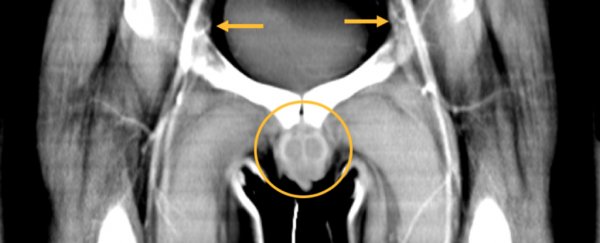Over a year since the history-making operation, the recipient of the world's first total penis and scrotum transplant – an injured veteran of the US Armed Forces – is "feeling whole" again and recovering well, doctors report in a case note on the pioneering procedure.
The man, who remains anonymous, was on patrol with his squad in Afghanistan when Taliban fighters ambushed them. As he went to give first aid to another soldier, he stepped on an improvised explosive device hidden on the road. In an instant, the blast took away much of the lower half of his body.
"I remember everything froze and I was upside down," the man told MIT Technology Review. "I remember thinking a quick thought: 'This isn't good.'"
It wasn't. In the sudden explosion, the soldier lost most of his legs, as well as his genitals and part of his abdomen. This was back in 2010.
At the time, there had only ever been one reported penis transplant, performed in 2006 on a patient in Guangzhou, China; as far as precursors go, it wasn't exactly promising. Complications set in early, and the man's body began to reject the organ, which showed signs of necrosis, possibly due to inadequate blood supply.
There were also psychological issues – including reported objections from the patient's wife – and the graft was removed only a fortnight later.
Nonetheless, reconstructive surgery specialists at Johns Hopkins Hospital were confident their soldier patient, whom they first met in 2013, would make a good candidate for transplant surgery – although it took five years of preparation (including extensive experimentation on cadavers) before they got a chance to try, once a suitable organ from a deceased donor finally became available.
During that long interim, three successful penis transplants had been completed: two in South Africa, both on patients who experienced penile loss due to infections stemming from circumcision; and one involving a man in the US, who had the surgery after a partial penectomy from penile cancer.
Yet none of those patients had lost as much as the soldier. His operation would be particularly ambitious, involving the transplant of a single piece of tissue encompassing penis, scrotum, and lower abdominal wall all together – something doctors had never attempted before.
In total, the entire transplant weighed nearly five pounds (over two kilograms), and measured 10 by 11 inches (roughly 25 cm).
Despite the challenges – which involved stitching together hundreds of tiny blood vessels only a millimetre or two wide under a powerful microscope – a 14-hour operation performed by 11 different surgeons was a success.
Even more significantly, over a year on from this world-first transplant, the medical team reports the patient is recovering well, with the organ and its reestablished nerve connections functioning about as well as could be hoped for.
"He has near-normal erections and the ability to achieve orgasm," the researchers write in their case report.
"He has normal sensation to the shaft and tip of the transplanted penis and can localise touch sensation… The patient urinates while standing, without straining, frequency, or urgency, with the urine discharged in a strong stream."
Although the operation involved transplanting the scrotum, the researchers elected not to transplant the donor's testicles, after consulting with bioethicists.
"If we had included the testes, the recipient could have fathered a child with the donor's DNA," one of the team, plastic and reconstructive surgeons, explained in The Guardian last year.
"This young man doesn't have children, but was happy with the decision. He's not in a relationship, but I'm sure he's thinking about getting into one now."
Another unique consideration in the patient's case was a bone marrow infusion from the donor, which lessens the soldier's immunosuppression medication requirements (which help the body to accept the new organ). Currently, he only needs to take a single tablet daily, and the team hopes that with advances in medicine he may be able to dispense with the drug entirely "in the next five to 10 years".
Whether that will eventuate is unknown, but what is perfectly clear is that this incredible procedure has significantly improved and restored the life this young veteran wants to lead.
He's now back at school full time, the doctors note, and lives and walks independently with the aid of his leg prostheses.
"He reports an improved self-image and 'feeling whole' again and states that he is very satisfied with the transplant and the implications it carries for his future," the researchers explain.
For a patient who once admitted he "struggled with even viewing myself as a man for a long time", he's back on track.
"I don't regret it," he told MIT Technology Review. "It was one of the best decisions I ever made."
The findings are reported in The New England Journal of Medicine.
